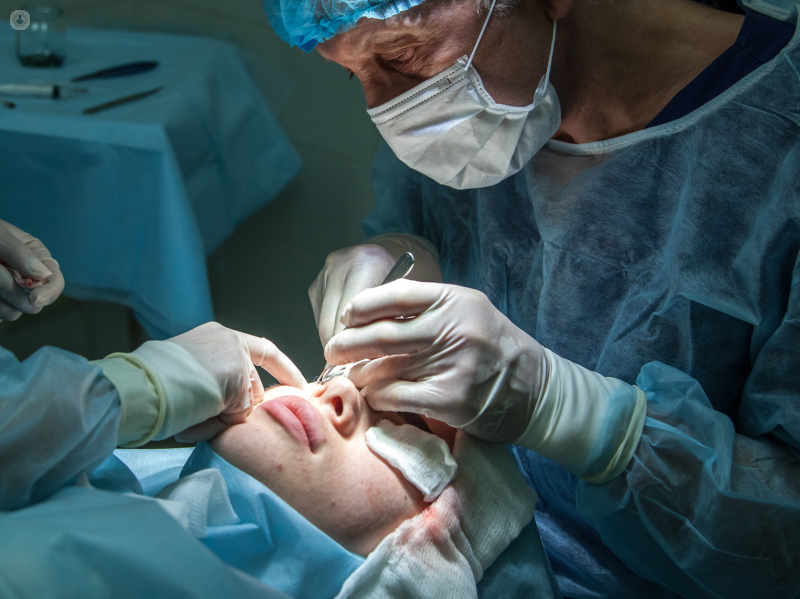You and your family must understand what to expect both before and after your surgery. Here are some frequently asked questions:
Do you remove my eye to do the surgery?
No. We insert tiny microsurgical instruments through the white area of the eye. These instruments cut, peel, and remove blood and scar tissue as well as perform a variety of other activities for patients who require surgery inside the eye. This is done while the surgeon uses a special microscope to examine the dilated pupil. This is done on the outside of the eye for patients who are having retinal detachment repair.
How soon after I arrive at the hospital will I be having my surgery?
Preoperative preparations are made before surgery to ensure that your procedure is performed under the safest possible conditions. This period can last 1-2 hours. Unexpected situations may arise before your operation. This can cause your procedure to be considerably delayed. If this occurs, we will do our best to notify you and your family.
What can I expect once I am in the operating room?
No one will appear recognizable once you enter the operation room since everyone is mandated to wear masks and head covers to maintain sterility. Sedation will be administered to assist with relaxation. Your doctor will do the procedure. At the end of the procedure, an assistant will help clean and sanitize the region around the eye, as well as apply antibiotics and a patch.
How long will my surgery last?
Retinal surgery generally takes 45 minutes to three hours. We can be more precise with you based on the surgical procedure you are having.
How will I feel after surgery?
Anesthesia affects each patient differently. It is not uncommon to feel sleepy following surgery. This can last anywhere from a few hours to several days. However, please tell us if something out of the ordinary occurs. You must call even if you believe it is a minor matter. Retina surgery is a serious eye procedure. After the local anesthetic wears off, expect the eye to sting. Pain medication can help with a lot of this. Unless there is a contraindication, we strongly recommend taking pain medication every 4-6 hours after surgery.
Many of you are already familiar with what works best for you. (Aleve, Motrin, or Tylenol). Some patients have medical contraindications that prevent them from using these. Please contact us if your pain worsens or does not improve after using the pain meds. After hours, there is always an eye doctor on call, or you can call us during business hours.
How long will I spend in the recovery area after surgery?
This will depend on how you are feeling. This period often lasts one to three hours, depending on the length of the procedure.
Will I get any stitches?
Yes. Unlike other eye surgeries, retina surgery necessitates the use of numerous very thin stitches. Fortunately, these will disintegrate on their own after a few weeks. Following your surgery, you will most likely feel as if something is in your eye. You can feel the stitches. Because both eyes move together, closing both eyes is the most effective technique to alleviate this discomfort. It may be difficult to keep the unoperated eye open right after surgery because the sensation of the sutures in the other eye causes the good eye to sympathize and close.
This isn't a concern; it will go away as the stitches dissolve. There will be more tearing than usual while the stitches are in place. This will also come to an end if the stitches dissolve. A little transparent cyst may form around a stitch on the white area of the eye (sclera). This is normal and normally goes away when the eye heals. If it doesn't, we can quickly get rid of it.
How will my eye look and feel after surgery?
When we remove the patch, your eyelid will be puffy and droopy, with a "black and blue" appearance. This is typical and will improve in the next two weeks. It is acceptable to wipe the lids with a cool, clean rag. For the first 48 hours, use ice for 20 minutes every hour. In rare cases, the eyelid may not fully recover, especially in older patients who have had many surgical procedures. If this is the case, a small operation performed in the clinic a few months following surgery can frequently help. The white of the eye will turn bright crimson. Within two weeks, this is usually greatly improved.
When you wipe your eye, blood may appear on the tissue paper. This is normally normal and comes from the outside of the eye. This should be resolved within a few days. Watering from the eyes and nose is normal and promotes healing, so you need not be alarmed about a watery discharge. Please contact us right away if you see a pussy discharge. Sunglasses may improve your comfort after surgery, but they are not required.






Comments